Once a reliable staple of TV, legal dramas are due for a resurgence
Remember when there would be several courtroom dramas on TV in any given week? They’ve become something of an endangered species due for renewal.
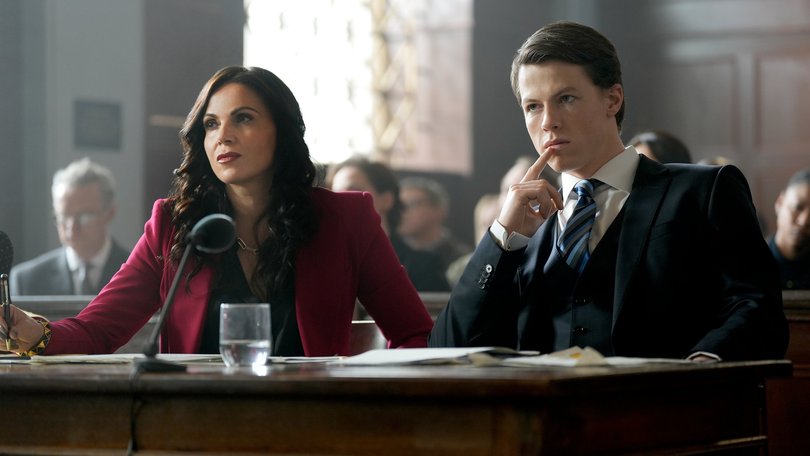
It wasn’t that long ago that we knew the ins-and-outs of the US legal system so well that we could predict how a TV judge was going to rule on an objection.
The courtroom drama was such a staple of American TV we all became experts. We knew what constituted hearsay or the rules of evidence in discovery.
Each series had its own quirks – Ally McBeal’s dancing babies, the righteous fury in The Practice, the will-they-won’t-they chemistry between Alicia and Will in The Good Wife – but there was an organising principle that had every episode would feature a courtroom scene from which someone would emerge victorious.
Sign up to The Nightly's newsletters.
Get the first look at the digital newspaper, curated daily stories and breaking headlines delivered to your inbox.
By continuing you agree to our Terms and Privacy Policy.If you were a fan of Boston Legal, you probably still remember James Spader as Allan Shore mounting impassioned speeches for self-defence, challenging the government and immigration. He was so articulate, persuasive and even poetic, it made you giddy.
These days, there’s a dearth of legal dramas. We miss the tete-a-tete of opposing counsel, the gotcha piece of evidence or the bombshell testimony that upends everything.
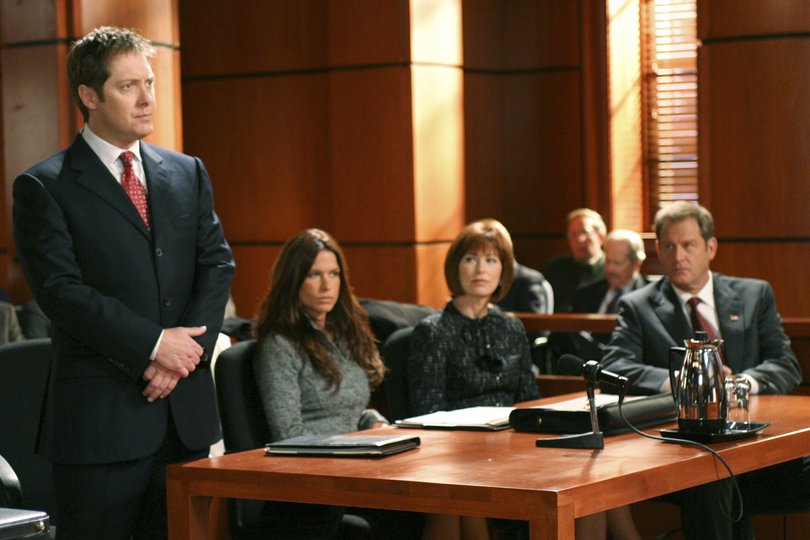
They’re not completely gone. The Matlock reboot with Kathy Bates is reliable fodder, Australian drama The Twelve dons those barrister wigs and robes, Lincoln Lawyer is something people watch, we guess, and versions of Law & Order is stil kicking around.
But the prime is past, and the few examples around, other than Law & Order, are fleeting, maybe 12 episodes every year or so.
You might get Jake Gyllenhaal stalking a courtroom for eight episodes in Presumed Innocent but there’s not 134 chapters to queue up like there was for Suits.
It’s a genre that’s ripe for a resurgence.
We don’t mean a second attempt at a Suits spin-off because that LA one with Stephen Amell was, to put it generously, a misfire. Not just because it seemed like no one watched it, but because the characters weren’t anyone we wanted to follow. The storylines were also equal parts ludicrous and yet somehow prosaic.
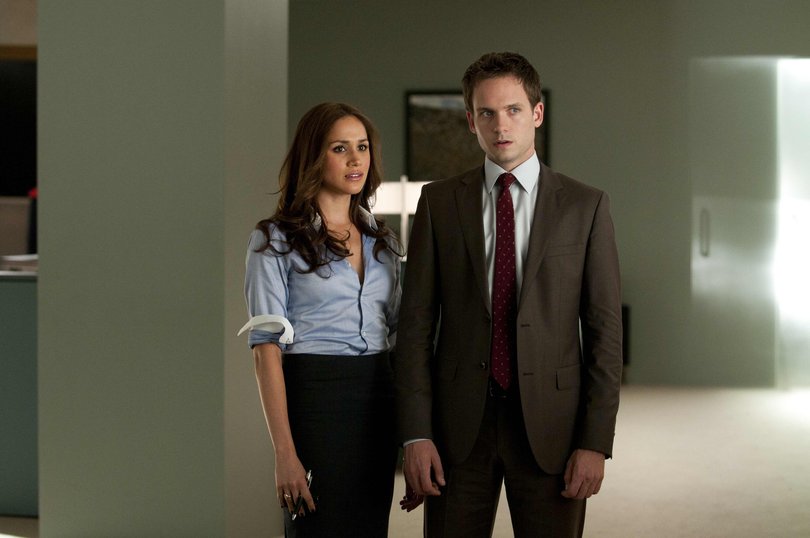
Suits was never a great show but it was compulsive even way past its creative peak, and it’s baffling that something as terrible as Suits LA came from the same creator, Aaron Korsh.
No one is saying that they weren’t correct to try and capitalise on the renewed, streaming-fuelled interest in Suits by going down the spin-off route, but if you’re going to do it, make it interesting.
Characters are key to a long-running legal drama. Because of the procedural nature of the genre, the thread audiences follow are the people stalking the halls of those generically decorated high-rise offices.
If you get those right, give viewers something to latch onto, then you just have to break some stories centred on curious legal cases.
Maybe it’s defending a friend who fired an employee for being disruptively effusive with his Scientology faith, as was a plot point in Boston Legal. Or defending a musical artist who’s being sued for breaching their contract after refusing to perform in Israel, which happened on The Good Fight.
The genre was so popular because it was a springboard to explore new, headline-y issues each week, while grounding the antics in a roster of regular characters. We’d follow Christine Baranski’s Diane Lockhart anywhere.
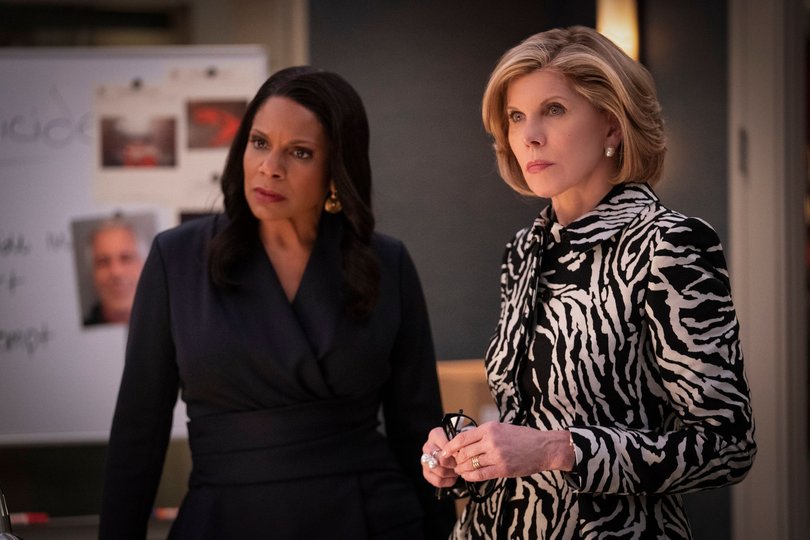
There’s a new legal drama out this week, but only one episode was made available for review so it’s hard to tell which way it’s going to ultimately land. That show is a TV reboot of The Rainmaker (on Stan from August 16), adapted from the 1995 John Grisham novel which already had a life on screen in 1997 in a Matt Damon and Danny DeVito-starring film directed by Francis Ford Coppola.
Grisham, of course, was known for his compulsive legal thrillers with many of them turned into films including The Firm, A Time to Kill, The Pelican Brief and The Client.
Coppola’s version of The Rainmaker was a relatively faithful version, following the story of law school graduate Rudy Baylor (Damon) who ends up taking on a case against a health insurance company, Great Benefit, who refused to pay out a claim for a young man who needed a bone marrow transplant to treat leukemia.
The Rainmaker is an underdog story, about an inexperienced but good-hearted and idealistic lawyer who takes on high-priced attorneys, led by Jon Voight’s character, Leo F. Drummond, who wear sharp suits and fly in first class. Rudy drives a beat-up and can barely afford to stay in a motel.
Then there’s the spectre of the insurer, a bad-faith corporate bogeyman that comes to stand in for all the Goliaths that exploit the underclass.
The TV version takes the broad strokes of the story except now Rudy (Milo Callaghan) had been fired by Drummond (John Slattery) from his powerful firm on his first day, and the insurer is now a hospital network being sued for a negligent death.
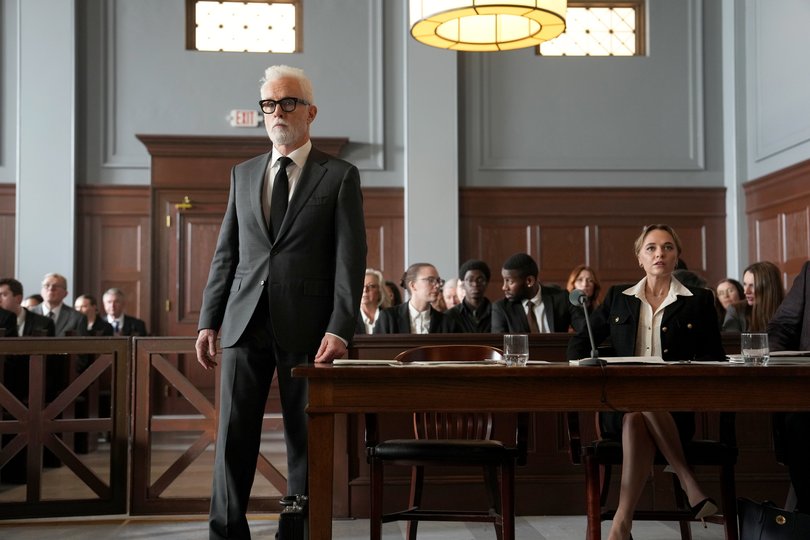
Rudy’s unscrupulous mentor in the book and film, Bruiser (Mickey Rourke), has been gender-flipped and is now played by Lana Parilla, and it doesn’t seem like she’s going to disappear early on like in the original story. Instead, she has the air of a crusader whose raison d’etre is to screw the big guys who are screwing the little people.
From that first episode, the TV version is more slick and pacey, and has the sheen of broadcast TV, which is not surprising when you consider that it’s from the USA network, which was the home of Suits in the 2010s.
The Rainmaker has the potential to be the legal dramas we’ve missed if it manages to move on quickly enough from the Great Benefit case. If it drags on too long, it starts to more resemble an anthology or miniseries, and that’s not what we’ve been crying out for.
It should be the jumping off point, not the whole season, and we want to see how the dynamic between an imposing Slattery as Drummonds fares against this iteration of Rudy, who already comes off as smarter and more assured than Damon’s version. This may not be a good thing.
Grisham’s works have been adapted into TV before (The Firm, The Innocent Man) but they’ve either been miniseries or they didn’t make it past the first season. The TV legal drama requires a faster turnover of cases, save the single stories for the movies.
If The Rainmaker doesn’t end up filling the brief, there’s another potential on the horizon, but it is from producer and writer Ryan Murphy, so it really could go either way. You either vibe with his stuff (The Politician, American Horror Story, Monster, Feud, Doctor Odyssey) or you don’t.
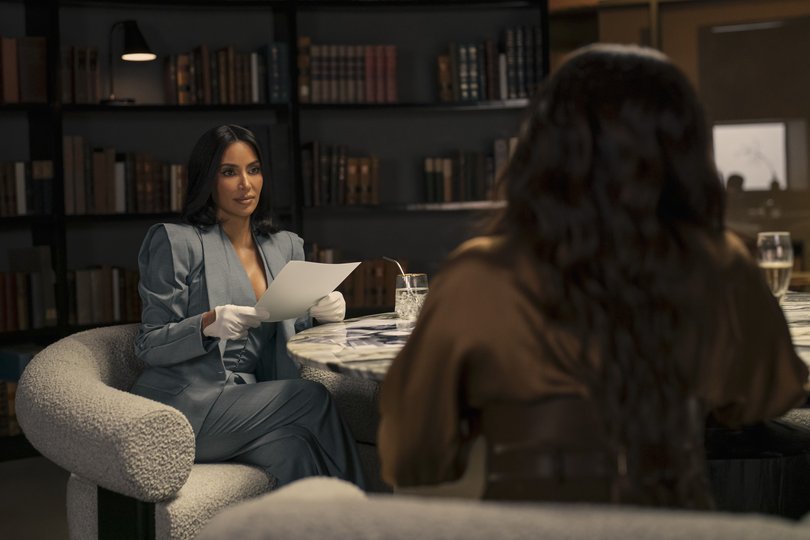
Murphy’s All Fair is already grabbing attention because of the cast involved, which includes Naomi Watts, Glenn Close (remember Damages?), Sarah Paulson, Niecy Nash, Teyana Taylor and Kim Kardashian. Kardashian has been billed as the lead in an all-female team of divorce lawyers.
Love and war is coming to the courtroom, and Close is seen in the trailer telling a client (played by Grace Gummer) to get mad and to get revenge. Maybe it’ll be a piece of dramatic catharsis for any woman who’s been wronged by a hopefully former partner, but it does at least seem like it’ll rotate through different cases.
The challenge will be whether Murphy, whose tone tends to be over-the-top, can create something that doesn’t exhaust within three episodes.
We need a bitey legal drama because these courtroom scenes are digestible, compact nuggets that encapsulate all the frustrations audiences have in their own lives, even if they’re not usually so escalated. It’s why Judge Judy reigned over daytime TV for so long.
When a TV writer puts into an actor’s mouth words that articulate what you’ve been thinking about some injustice, small or grand, it feels so good to watch that unfold. Bring back the courtroom theatre.

